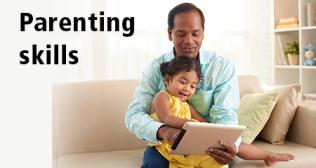
Innocent Child Victims of Aggression: Impact And Way Forward

“Aggression is on the rise.” This is a statement I very frequently hear from the people I work with. And each time I hear this I also hear a lot of fear and anxiety that accompanies these statements. More often than not this statement is followed by “What would happen to our children? What legacy are we leaving behind?” It is not often that I would choose to respond to these questions because more often than not they come across as being rather rhetorical. But today I thought that I must respond, particularly in the context of those children who already have become victims of aggression inadvertently, through no fault of their own.
There are various scenarios in which a child can become an innocent victim of an aggression act. Some of these include being caught in a scuffle between other children sometimes at school or near home, being stuck in a disagreement between parents which gets aggressive, being caught in a violent situation like a robbery, accident, shooting, or even a natural disaster.
What Aggression Does to an Innocent Child
This aspect probably needs reiteration. It is not that you and I do not know or understand the impact that aggression in itself can have upon any individual. But what does happen when a child is caught in the midst of a violent or aggressive act through no fault of their own? How does that affect the child is the question I want to answer today.
The fact is that when any event catches us off-guard or when we know we have not done anything to bring upon ourselves the consequences we have experienced, the impact is far greater. Let us look at what happens when the person undergoing such an experience is a child:
- Sudden acts of aggression and violence can make the world seem unpredictable.
- The unpredictability of the world takes away from a child’s sense of certainty about how things would unfold typically in a given situation.
- It affects a child’s sense of confidence and reliance over the world and people.
- It impacts their sense of safety and security, often making them seek reassurance and the active presence of others around themselves to feel secure.
- A child finds it difficult to engage with things and situations as they are no longer sure about what consequences may follow through on account of their actions.
- For a proportion of the children it also takes away from their sense of self and casts shadows and doubts about who they are and what they can do and achieve and what they cannot.
- It can strongly impact and reshape their personality and temperament where they can become timid and shy or also vacillate towards the other extreme of themselves becoming irritable and aggressive.
- Aggression and violence can become a learnt response for children who have frequently experienced the same in multiple situations.
- Other children can develop a pattern of withdrawing from situations.
- Children can develop extreme fearfulness and experience significant anxiety in similar as well as new situations.
- Some children can also be seen having difficulties with sleep and changes in their appetite.
The effects as can be seen can be many and in multiple directions. This makes it imperative that we develop ways of protecting innocent children from such experiences of aggression and violence in the first place. But in a situation where such an instance or multiple instances have already occurred, we need to have some strategies in place to take care of and remove the multiple negative impacts the situations are having.
What Can You Do as an Adult Caregiver?
Whether you are a parent, teacher, relative or any other significant adult in a child’s life, there are at least some things which you can do to take care of the situations that follow when a child has been an innocent victim of aggression or violence.
- Find a way to buffer the child. If you know situation can be repeated, you need to determine a way in which you can create a buffer or a way of distancing the child from the situation in the future.
- Discuss with the child what they can do in similar situations if they were to occur in the future. As for the child it is important to develop a sense of agency and not to always feel victimized.
- Talk to the child about his experience. Do not hesitate to talk to the child about what you know about the situation that has occurred. Remember the child would always be more uncertain and would need direction in such a situation.
- Children can be anxious and apprehensive in sharing what they are thinking and feeling. However, this very aspect makes it imperative that you do talk to them about thoughts and feelings as you would want them to internalize aspects which may do them more harm.
- Encourage the child to not change his routine and the things he does to ensure that there is continuity in his life and the way he has been living it.
- Ensure that other children around the child do not ridicule or quiz the child too much. If you feel others may want to talk and discuss things with the child, it would be more helpful to address their questions yourself proactively first to settle them so that the child does not feel pressurized.
- Share what you may know of what may have happened with the child with the other significant adults in the child’s life so that they too can take care of him.
- If the act of violence or aggression has occurred in a structured setting like a playgroup or a school, then be sure to share the details with the various stakeholders involved in the same and devise effective strategies to help ensure the child feels safe in venturing into the same space again.
- If you see too many changes happening in the child’s personality or temperament be sure to seek professional help which would be needed to help the child overcome any negative thoughts and feelings that he may be harboring within him.
Situations where children have been innocent victims of violence and aggression are very sensitive and require careful handling. As an adult caregiver your role is of great importance and one that cannot be emphasized enough.
See Ms. Kamna Chhiber's profile here



















